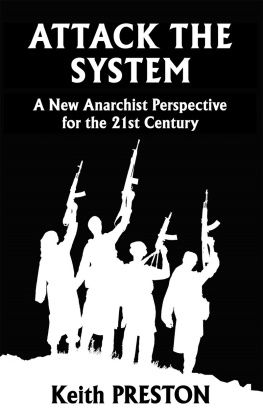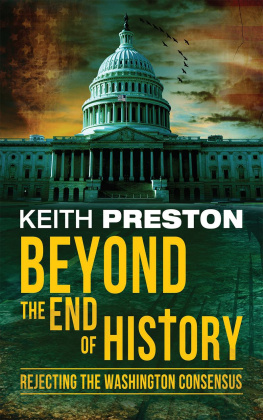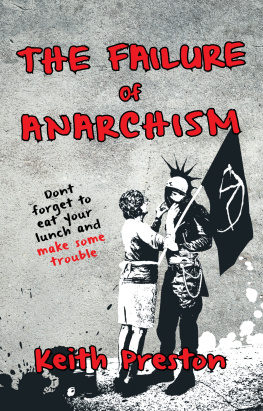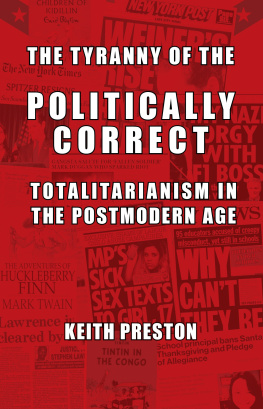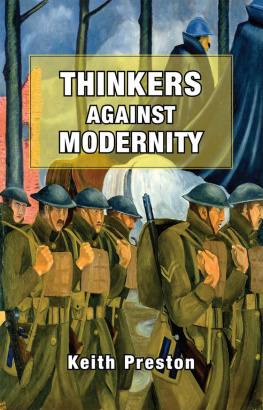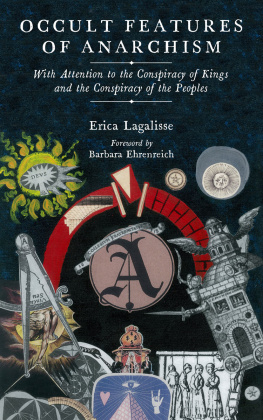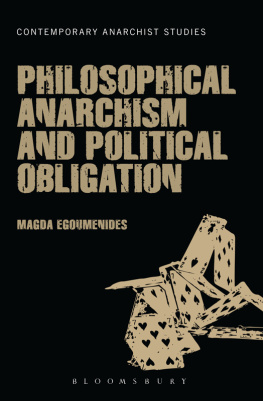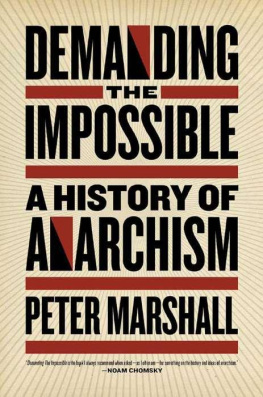ATTACK THE SYSTEM
A New Anarchist Perspective
for the 21st Century
Keith Preston
Attack the System
A New Anarchist Perspective
for the 21st Century
Keith Preston
Copyright 2017 Black House Publishing Ltd
All rights reserved. No part of this book may be reproduced in any form by any electronic or mechanical means including photocopying, recording, or information storage and retrieval without permission in writing from the publisher.
Black House Publishing Ltd
Kemp House
152 City Road
London
United Kingdom
EC1V 2NX
www.blackhousepublishing.com
Email:
To all enemies of the state, whoever
they are and wherever they may be.
Contents
Introduction
It has been said that anarchists are born and not made. Perhaps my own personal history serves as evidence to support such a claim. I still remember quite vividly the moment when I first came to understand that there really were people who stood for the abolition of the state and who seriously claimed the label of anarchists for themselves. I was a high school student at the time, about sixteen or seventeen years old. My senior level English literature textbook contained a brief biographical feature on the poet Percy Bysshe Shelley which mentioned that Shelley had been the son-in-law of William Godwin and that Godwin was an anarchist. I was instantly intrigued. The idea that there was actually a movement of those committed to anarchism as a philosophy and whose ranks included serious scholars and intellectuals was something that I found fascinating. Though I had never before heard of the concept of anarchism, it somehow felt very familiar as though I had discovered something that had already been a part of my life on a subconscious level all along. I had experienced similar feeling a short time earlier in the very same English literature class when I first encountered Thomas Jeffersons often-cited quote from a letter to James Madison concerning Shays Rebellion, A little rebellion now and then is a good thing.
Though my fascination with the notion of anarchism was immediate, it would be several more years before I would give the matter any serious reflection. For as a teenager living in a small town in the American state of Virginia in the early 1980s I was far more concerned with psychoactive substances and rock music than I was with philosophy or politics. My own early life was about as far removed from the world of the anarchist radical that I would later become as it could be. I came from an entirely conventional middle class American family and my own parents held impeccably conservative attitudes. The cultural revolution that Western civilization experienced during the 1960s had barely touched the Virginia community where I spent my 1970s childhood. Indeed, I was at the time part of the far fringes of the Christian fundamentalist subculture that looked with abject horror at the changes that were then transpiring in the outside world. The subculture from which I came attempted to isolate itself from that world and I spent my earliest years as a pupil under the tutelage of evangelical Protestant ideologues.
Being an obstreperous adolescent and rebellious young man, I was soon enjoying quite a career as an up-and-coming delinquent that led ultimately to experiences involving crashed cars, encounters with the police, and time spent behind bars. I graduated from high school only because of the generosity of the school administration and their probable desire to be rid of me, and began to attend college only for the sake of avoiding working for a living. But it was during my early years in the world of academia that I began to take ideas seriously and there was no idea that I took more seriously than the political philosophy of anarchism. I was an anarchist before I ever met any other actual anarchists and my earliest sources of information on anarchism were generic ones such as encyclopedias. It was through time spent in my college library that I first encountered names such as Proudhon, Bakunin, and Kropotkin, and terms such as syndicalism and mutualism. It was a short time later when, after transferring to another college and relocating to another city, I attended my first meeting of real life anarchists in the spring of 1988. I found them to be a strange lot indeed with their bizarre fashions, body piercings, and hairstyles, and orientations towards alternative lifestyles such as veganism, squatting, gender-bending, and habitual vagrancy.
It was through the anarchists that I was introduced to the subculture of the radical Left as it was in the United States of the 1980s. It was a subculture that in many ways seemed to be the polar opposite of the subculture in which I had spent my childhood and adolescence. The popular left-wing causes of the time were the growing environmentalist movement, the various expressions of identity politics and the related attitudes that later came to be known as political correctness, and opposition to intervention by the United States in the civil wars that were then raging in the Central American nations. It was only the latter of these that ever made any particular impression on me. For it was through reading the works of leading critics of American imperialism from the time and, more importantly, hearing the personal stories of refugees from the US-backed regimes in Central America that I came to understand the true nature of the American empire and its impact on the poor nations of the earth. I became a committed revolutionary and have remained one ever since.
For a number of years in the late 1980s and early 1990s I was a hardcore participant in the radical left-wing movement though always with a strictly anarchist orientation. I regularly engaged in intense arguments and debates with Communists at leftist events. My weekly routine consisted of meetings, demonstrations, community projects, teaching at an alternative school, and writing articles for radical newsletters to the point where I was not able to remain in college and I would not complete my degrees until many years later. Meanwhile, I found myself having to arrange my radical activities around keeping a steady enough job to pay the rent. I also devoted myself to an intense study of anarchist history and theory. I became ever-more fascinated with the many varying sects of anarchism and related philosophies. The more my knowledge deepened the more dissatisfied I became with both the actually existing anarchist movement itself and the wider radical left-wing subculture. I came to believe that most leftists spoke in platitudes that lacked genuine substance, much like the Christian fundamentalists in whose company I had spent my earliest years. And I came to regard most anarchists as a collection of neer-do-well youth whose overall level of theoretical sophistication and competence as political organizers and activists was shabby beyond belief.
I began to distance myself from the left-wing circles I had previously been involved with and retreated into an ever-greater amount of private study. Meanwhile, I became increasingly concerned about the domestic American police state that began to rapidly expand itself during the 1990s under the guise of the wars on drugs and crime. It was during this time that the American patriot and militia movements began to develop and I found myself becoming increasingly interested in the growth of this indigenous American populist movement with a solidly anti-state bent. Through attending the events and reading the literature of these people I came to realize that many of them were anarchists in practice if not in name. I began to develop plans for a new anarchist movement that could move beyond the clichd leftism and pretentious counter culturalism of the anarchist establishment towards an anarchist-led anti-state populism with an ever-more militant stance.

